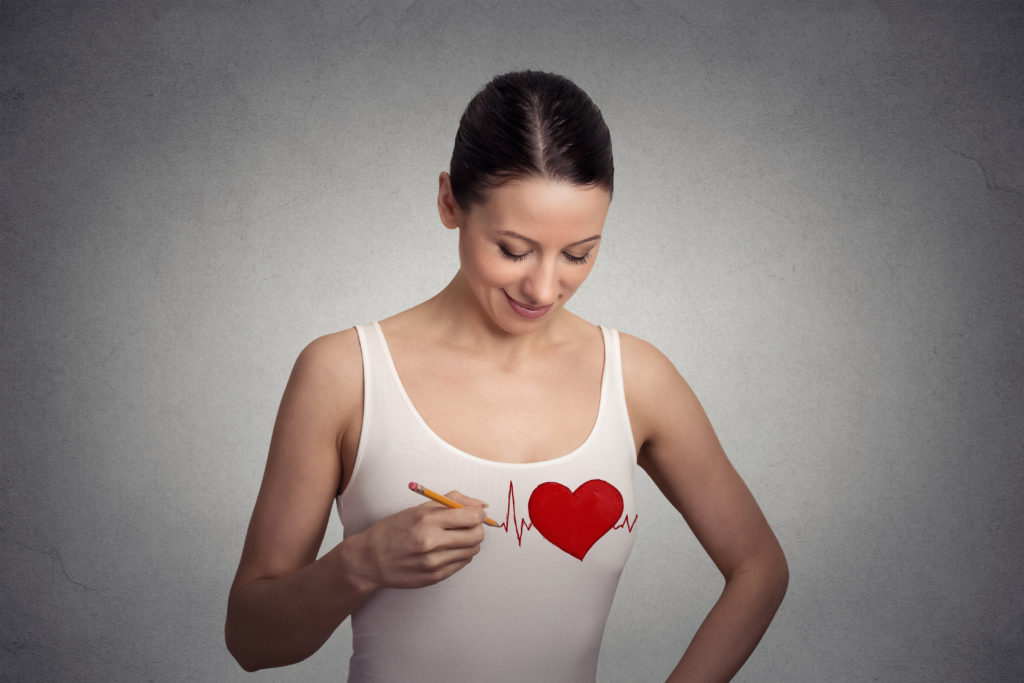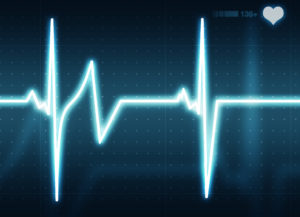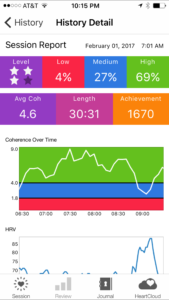
In Part 1 of Heart Health and Breast Health, I spoke about the emerging field of neuro-cardiology, which is the study of how the heart and the brain communicate with one another. Remember that science now knows that it is the heart which actually sends more cellular and chemical signals to the brain than the other way around! In Part 1, we also discussed how being in coherence can lead to greater peace of mind and also better health.
Now let’s dive right in and discover ways in which you can train your brain and heart to be in more harmony and balance. Remember the imagery of the “beautiful music” made by the “symphony” of a heart that is in coherence? Well, YOU can learn how to make beautiful music too– which can translate into a beautiful and more vibrant life!
What is Heart Rate Variability?

There was a time when scientists thought that a healthy heart should sound steady and regular– much like a metronome. The latest research, however, has concluded that this is far from the case. A healthy heart is actually very irregular. The organically-changing rhythm that a healthy heart makes is called Heart Rate Variability, or HRV. To put it another way, HRV is the “change in time intervals between adjacent heartbeats.”
Why Is Heart Rate Variability Important for Your Breast Health?
You may think, “All this new info about the heart is very interesting but what does it all have to do with my journey with breast health?”
Surprisingly, a lot more than you may think! This is because HRV can affect every one of the body’s interconnected regulatory systems, including the nervous system, the digestive system, the endocrine system and the reproductive system.
“An optimal level of HRV within an organism reflects healthy function and in inherent self-regulatory capacity, adaptability, or resilience,” say Rollin McCraty, Ph.D., Director of Research for Heart Math Institute, and Fred Shaffer, PhD. BCB of the Center for Applied Psychophysiology at Truman State University in a recent paper.
“Resilience” is the ability to manage one’s emotions, stay flexible and maintain focus, especially during times of change, crisis and trauma.
Essential #4 of the 7 Essentials System™ is all about “healing your emotional wounds.” Heart Rate Variability gives us an excellent example of how the emotions and our physical health are intricately linked. In general, says McCraty and others, too much variability in heart rate is an indication of chaos and imbalance in the nervous system. Too little variation can indicate depletion of energy, chronic stress, or imbalance in one of the body’s systems.
Healing emotional stress and trauma can lead to the cultivation of more positive emotions on a day-by-day basis. As McCraty, Rollins and others point out, numerous studies have

concluded that the development of positive emotions such as appreciation, gratitude, joy, humor and love directly correlate to lower blood pressure, fasting glucose levels and a reduction in the overall stress response. Improving the condition of any one of these factors within your body can lead to less risk for breast cancer and cancer metastasis for you.
What YOU Can Do to Help YOUR HRV
There are many modalities out there that can help you calm your nervous system and heal your emotional wounds; meditation, prayer,
exercise and Emotional Freedom Technique are just a few examples. There are also technologies that can help you work directly with your Heart Rate Variability levels and help you develop the skills to actually change your heart rate into a healthier state.
One such technology that I have been using for some time is Heart Math’s Inner Balance™ app for iPhone, iPad or iPod (Android-compatible units coming soon). This portable, easy-to-use self-monitoring device helps you change your reaction to stress.
I really love this little device because it helps me to monitor my stress and remind me to get into balance and coherence. The monitor works through an earpiece and a breath monitor. Any time you want to complete a “session,” the app will give you insights as to how your internal reaction to your circumstances effects your HRV. It’s simple and it’s portable so I can monitor when I travel or when I am at home.
The Heart Math apps are great examples of how technology can be used to improve our quality of life by getting to the very root of disease—our emotional, chemical and energetic response to stress.
Dr. Veronique Desaulniers, better known as Dr. V, is the founder of the 7 Essentials System ™, a step-by-step guide that teaches you exactly how to prevent and heal Breast Cancer Naturally. To get your F.R.E.E. 7 day mini e-course, and to receive her weekly action steps and inspiring articles on the power of Natural Medicine, visit https://breastcancerconqueror.com/

One thought on “Heart Health and Breast Health Part 2”